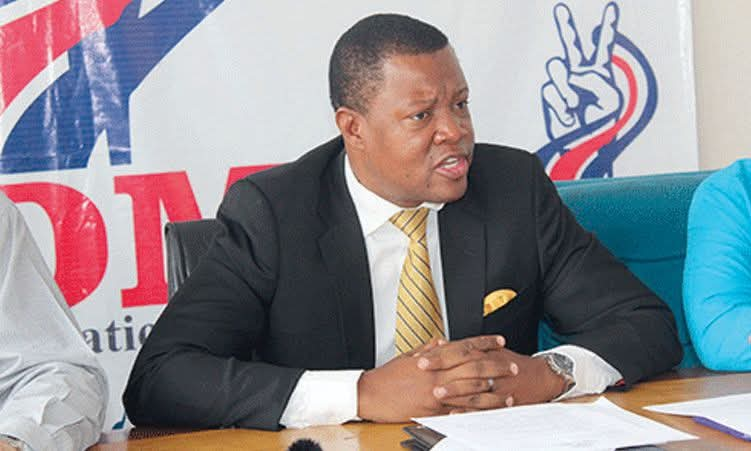Zebaldt Ngaruka
The president of the Popular Democratic Movement (PDM) McHenry Venaani said the N$2.6 billion allocated to the agriculture ministry is inadequate for a country that is importing the majority of its food.
Namibia imports a significant amount of food, particularly from South Africa, and relies heavily on imports for processed agricultural products.
In his contribution to the 2025/26 financial year budget, Venaani said the amount was given to the ministry with specific reference to the Neckartal Dam Irrigation Project Phase Two, and general improvements to food systems.
“That amount is insufficient, considering that it is divided across irrigation, land reform, extension services and livestock support,” said the parliamentarian.
Venaani added that Namibia cannot meaningfully tackle youth unemployment, rural poverty or the trade deficit without turning agriculture into a viable commercial sector, not just a subsistence one.
“The PDM has long championed the clarion call for agricultural mechanisation in our lifetime. Yet, the budget fails to articulate a national plan for agri-logistics, including cold chain infrastructure or a coherent framework for commercialising communal land-based production,” he added.
He said there is less mention of targeted tax incentives for the private sector-led agro-processing facilities.
This budget, Venaani said, lacks a bold proposal to stimulate domestic value chains.
“Namibia continues to export raw beef, raw grapes, raw charcoal and unprocessed mahangu, only to import the finished goods we could be making ourselves. This is not just an inefficiency, it is an economic own goal,” said the former official opposition leader.
Venaani said finance minister Erica Shafudah referenced the elevated commodity prices in uranium and gold, but failed to use the same lens when assessing the potential of agricultural commodities like cattle hides, marula oil or table grapes.
“We need a fiscal policy that treats agro-industry with the same seriousness as mining and tourism,” he said.
The lawmaker is of the view that a budget geared at addressing the missing piece of economic success would have seen the introduction of a Value-Addition Incentives Act.
Venaani suggested that it could provide a five-year corporate tax holiday for first-time agro-processors, zero-rate VAT on locally-sourced agricultural inputs, and offer a rebate on energy costs for processors operating in rural areas.
He added that a streamlined Green Scheme leasehold framework prioritises local agri-entrepreneurs and cooperatives through a transparent scoring system based on viability, and not political connections.
The PDM leader proposed a domestic procurement quotation, requiring all State institutions to source a minimum of 40% of their food from local producers by 2026, with built-in protections for emerging farmers.
Furthermore, Venaani said the real tragedy is not that Namibians are short on land or talent, but it is only that the country continues exporting value and imports dependency.
This budget, he said, should have been the one that said it’s enough.
“Enough of importing fruit juice, while our fruit trees are left to rot. Enough of promising food security, but failing to secure farmers from drought, market failure or administrative bottlenecks.”
Venaani said farmers need policy clarity, value chain support, and a government which believes in their potential to feed the country.
“This is how we decolonise our economy, not by slogan, but by structuring opportunities for our people,” he continued. – zngaruka@yahoo.com



